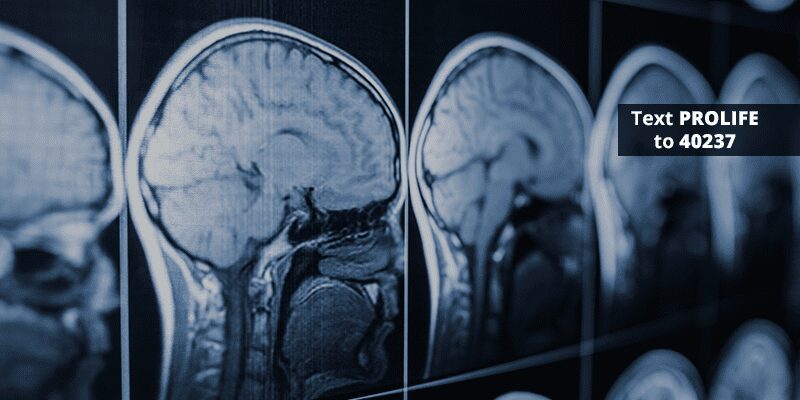“Your mother’s tests show no brain function, which is a clear indication of brain death.”
In 2016 alone,15,405 families heard a similar report from a physician, facing the shattering loss of a loved one declared and diagnosed with brain death.
The already devastating shock of this news is commonly exacerbated by the absurdly fast turnaround of most diagnoses. More often than not, the attending physician runs a few tests, such as an EEG, CT scan, or blood flow scan, then arrives at his diagnosis within days, even hours, of the patient’s admission to the hospital.
State laws throughout the country, including in Texas, require a showing of “irreversible cessation of all spontaneous brain function” before a doctor can declare a patient’s death. When questioned about the irreversibility of a patient’s loss of brain function, most doctors are emphatic: “If there is no functioning in the brain, that function will never be recovered.” But this impulsive verdict raises the question: why, as with every other injury, do we not allow the brain time to heal?
In July of this year, JAMA Neurology, a peer-reviewed medical journal published by the American Medical Association, released a study exploring the long-term progression of traumatic brain injuries (TBI). The findings are striking.
“Among participants in a vegetative state at 2 weeks, 62 of 79 (78%) regained consciousness and 14 of 56 with available data (25%) regained orientation by 12 months.” When given the chance, patients who had spent their first two weeks after injury in an unchanged, unresponsive state regain significant functional capacity after a year of recovery.
The message from authors is clear:
“When discussing prognosis during the first 2 weeks after injury, clinicians should be particularly cautious about making early, definitive prognostic statements suggesting poor outcomes and withdrawal of life-sustaining treatment in patients with [moderate to severe] TBI.”
Geoffrey Manley, vice chair of neurological surgery at UCSF and chief of neurosurgery at Zuckerberg San Francisco General Hospital, shared a chilling statistic. “Withdrawal of life-sustaining treatment based on early prediction of poor outcome accounts for most deaths in patients hospitalized with severe TBI.” This admission directly contradicts the recommendation of the authors of the study.

The findings in JAMA aren’t new, but confirm scientific research that has been on the books for decades. The American Academy of Neurology (AAN) has long held that brain injuries require a long recovery period. In 2018, the AAN released a revision to their 1995 study, proposing that only after 28 days can a disorder of consciousness such as a brain injury be declared irreversible. The medical and scientific community has not reached a consensus on the time required to adequately gauge the extent of a brain injury.
Nor has the medical and scientific community reached a consensus on the validity or implications of brain death. Those brain injuries that are the most catastrophic often leave the patient with a total absence of detectable brain function, such that the brain appears to be a dead organ. If, through a decentralized and unregulated protocol, a physician determines the total absence to be irreversible, the patient is declared brain dead. In every US state and throughout much of the world, a patient who is brain dead is legally dead—merely a corpse according to the government. On the most elementary level, however, the brains of these patients are traumatically injured.
Studies like those published by JAMA and the AAN reveal that brain injuries are significantly more complicated than the average hospital physician would have us believe. The brain is an exceedingly complex organ that the medical community has only begun to unpack. If there is no medical consensus on the determination of brain death, if every hospital follows a different protocol, and if current research promotes long recovery for brain injuries– then why are we diagnosing brain death after one day in the ICU?
To hear that your loved one is brain dead is heart wrenching. To question the accuracy of the physician’s diagnosis is unbearable.
Families should be able to trust their physicians to make discerning assessments based on sound, current medical research. We strive and pray for a new normal– Pro-Life physicians who embrace research that gives hope of recovery, and fight for their brain injured patients:
“Your mother’s tests show no brain function or activity, but with time, she could regain both.”
Watch the video below to learn more about navigating a hospital’s brain death threats against your loved one:
How long do YOU think doctors should wait before declaring brain death?

